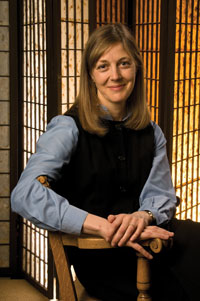
Mary Levin photo
As told to Jonathan Kiefer

As a country, we don't have a very sophisticated way of talking about racism. It's all very simple: You're either racist or you're not. So there's not a very complex understanding of how racism continues at a structural level, not just at an individual level. What happens to me all the time in my classes is that I get a number of white students who, as they start to learn about racism, are really undone by it. There's so much frustration and guilt, and they just don't know what to do with how bad they feel about things that have been done, so to speak, "in the name of whiteness." I've thought about that a lot, and I work with that. I'm trying to get them to be a little less attached to the thing itself, to not be so caught up in identity. And in 10 years, I don't think the students will have the same response. My teaching tends to have a bit of emotional energy. Where do you locate your own feelings about what's right and what's wrong in the world? I try to get students to think about how they know what they know about their world: where they are getting their knowledge. There's no question that the complex route that I followed for my education plays out in my teaching—in terms of truly working hard to believe in students, and to recognize the potential ways for students to feel like they're not believed in. The message I give is that they belong here.